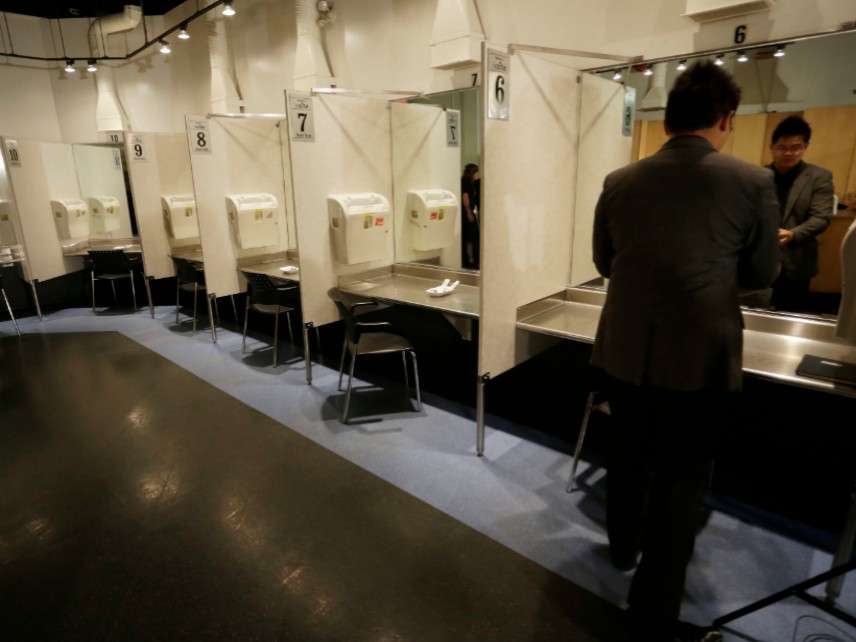U.S. Attorney for Seattle Threatens To Block Supervised Injection Facility
Nearly two decades of data from Canada show that such facilities reduce overdose deaths.

The Justice Department fired another salvo this week at harm reduction advocates. Their crime: trying to bring down the death toll from opioid overdoses.
Brian Moran, the U.S. attorney for the Western District of Washington, told Seattle journalists Wednesday that his office would sue Seattle if it moved forward with plans to allow a supervised injection facility (SIF) to open in the city.
According to the Seattle Times' Mike Carter, Moran told Seattle City Attorney Pete Holmes that his office would borrow a play from the Eastern District of Pennsylvania, which sued Philadelphia in federal court in February in order to block that city's planned SIF. In the Eastern District's lawsuit, U.S. Attorney William McSwain alleges that a SIF would be illegal under federal "crack house" laws that make it a crime to operate a facility where drugs are used.
"We are all trying to solve a horrific crisis, and these are people whose intentions are well-mannered, well-meaning and in good faith," Moran told the Times. "This is not a time or place to bring a heavy hammer for people with good intentions."
If it sounds like Moran is playing nice, that's because a federal lawsuit is relatively tame compared to the "hammer" brandished in 2017 by the U.S. attorney in Vermont, who threatened SIF advocates in Burlington—including the city's top prosecutor—with federal asset forfeiture and prosecution if they moved forward.
"It is a crime, not only to use illicit narcotics, but to manage and maintain sites on which such drugs are used and distributed," declared a December 2017 statement from the U.S. attorney's office in Vermont. "Thus, exposure to criminal charges would arise for users and SIF workers and overseers. The properties that host SIFs would also be subject to federal forfeiture."
Meanwhile, Philadelphia's Safehouse, a privately funded nonprofit working to reduce overdose deaths in the city, plans to move forward with its supervised injection facility. The organization has pointed to research in other countries that shows SIFs reduce overdose deaths among people who use the facilities, both by having nurses and doctors on hand to reverse overdoses and by connecting drug users with social services.
Safehouse counter-sued the Justice Department this week, asking for an injunction that will prevent the department from interfering with the operation of a future Philadelphia SIF location. The Philadelphia Inquirer's Aubrey Whelan reports that Safehouse is fighting the suit on religious grounds as well as public health. "The DOJ's threats and the initiation of a lawsuit against Safehouse burdens Safehouse by forcing it to choose between the exercise of its founders' and directors' religious beliefs and conformity with the DOJ's interpretation of [the crack-house statute]," the suit reads.
Despite the feds' opposition, the SIF model is drawing interest in big cities around the country. New York Mayor Bill de Blasio has asked the state government for approval to allow four SIFs in NYC, but he's being slow-rolled by Gov. Andrew Cuomo, due to Justice Department opposition. Earlier this year, the mayors of Boston and Cambridge traveled to Canada to tour Vancouver's Insite, which in 2003 became the first SIF in North America.
"There's more than enough evidence now that we should be adopting this model," Dr. Jessie Gaeta, chief medical officer at the Boston Health Care for the Homeless Program, told WBUR in January.


Show Comments (20)